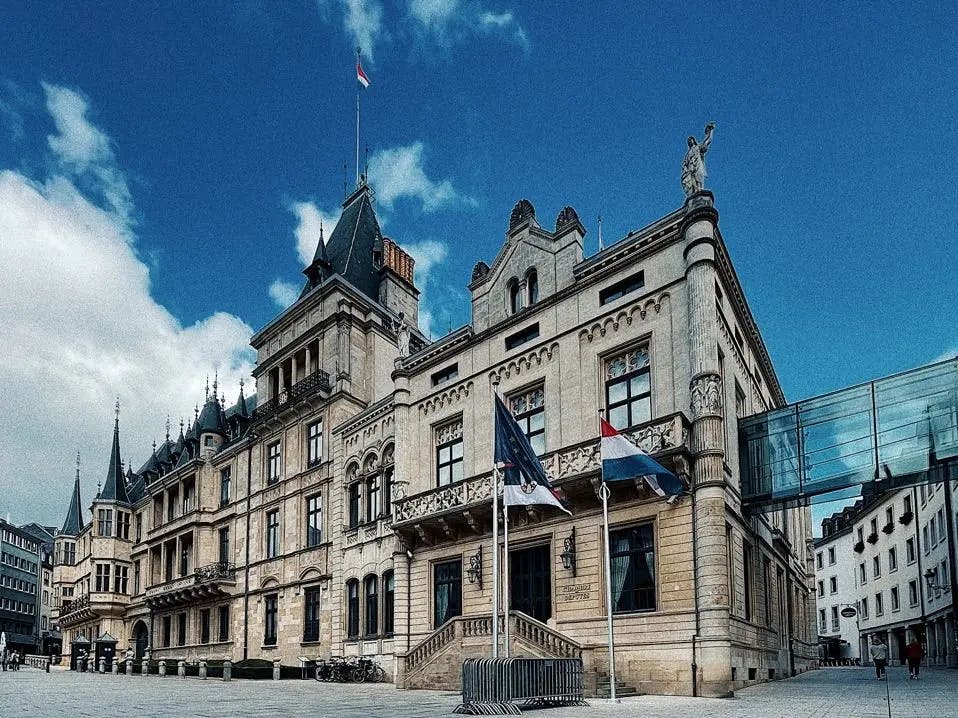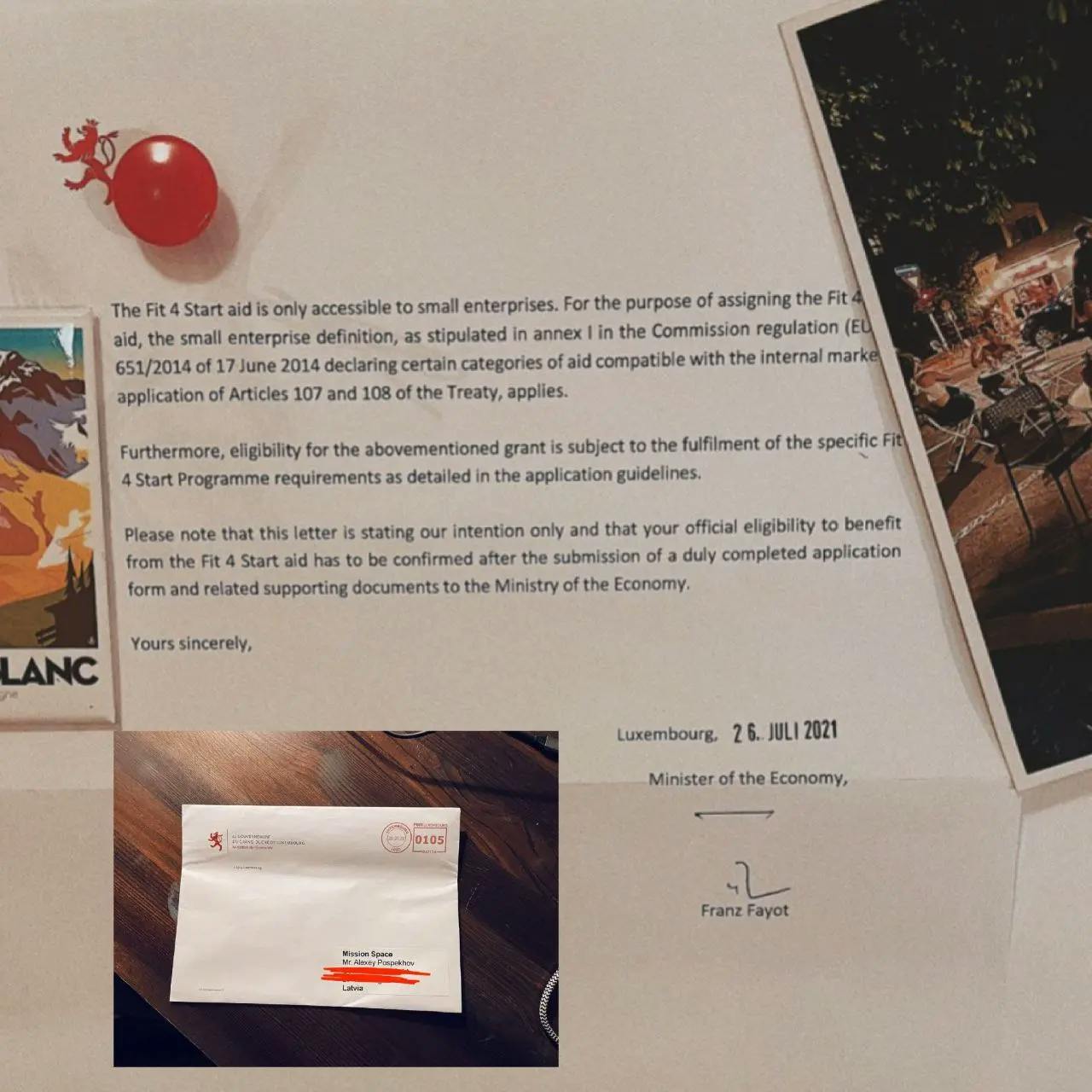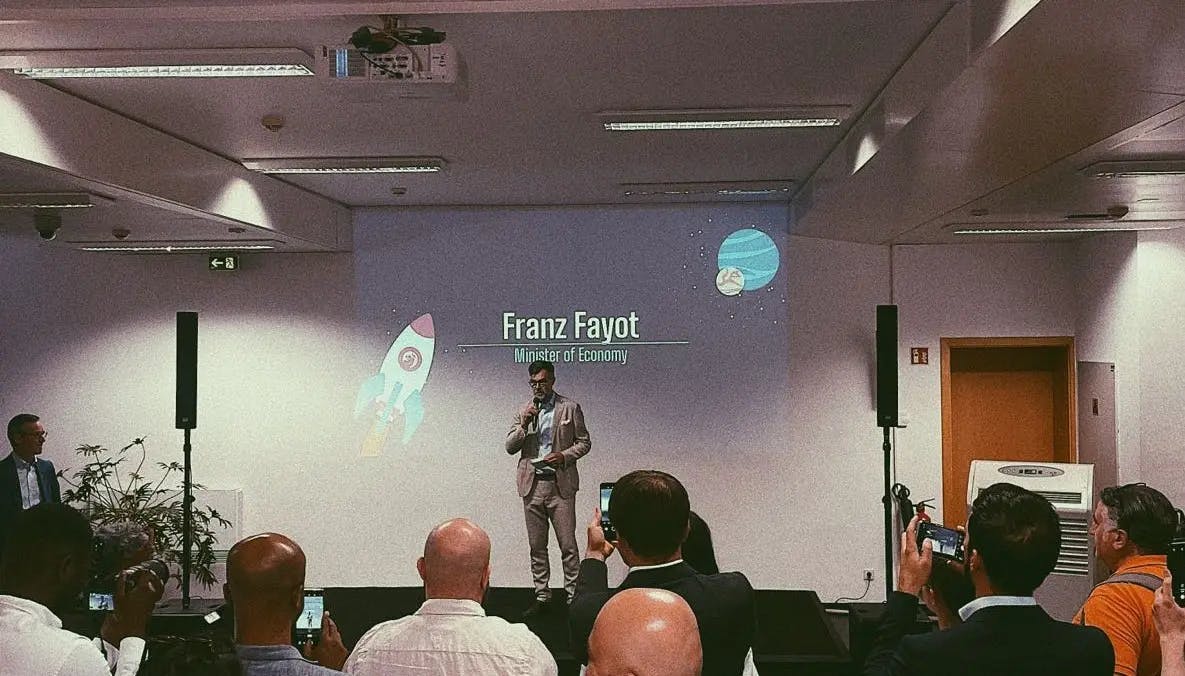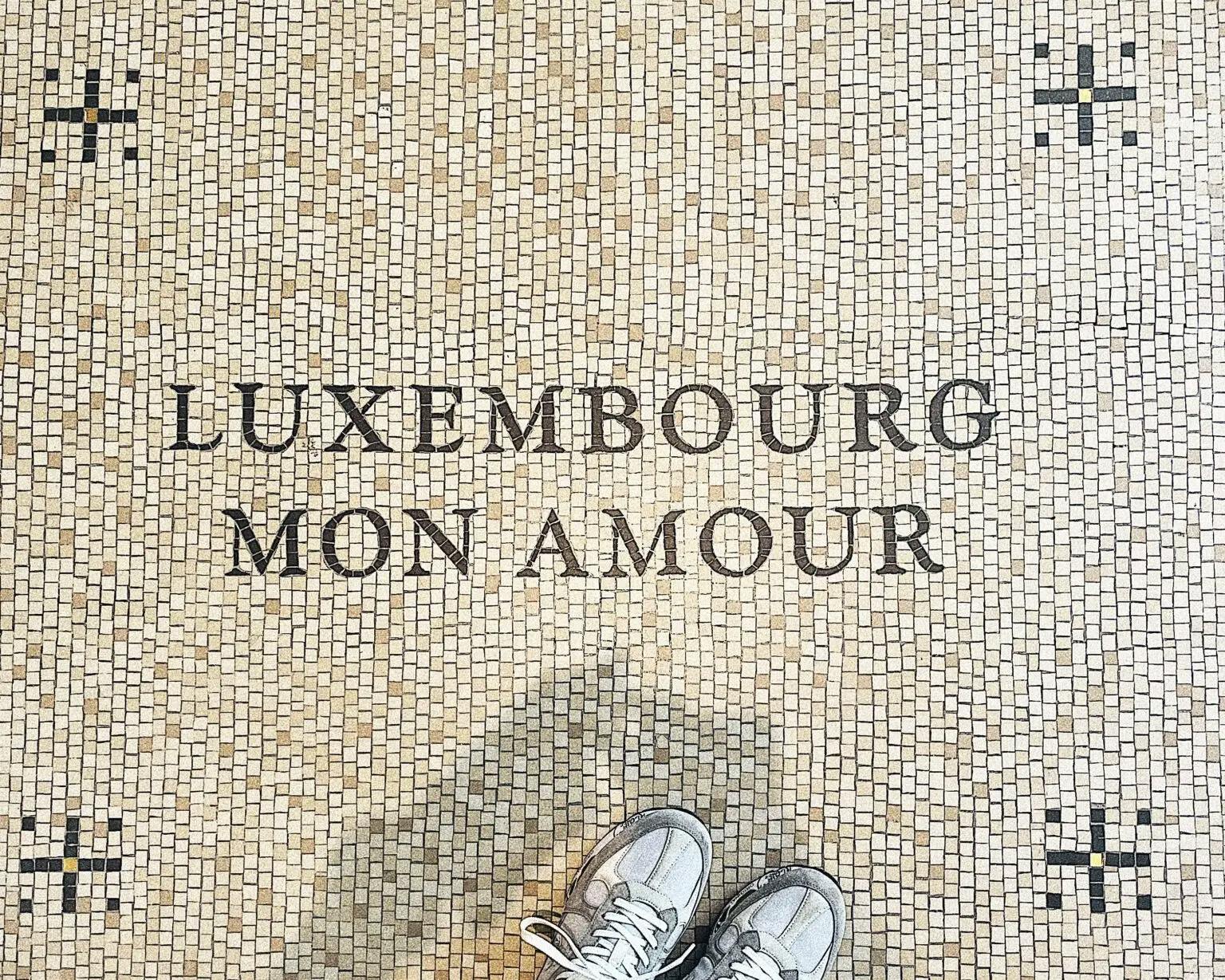How to relocate a business to Luxembourg, an expat mindset country

My name is Alex Pospekhov, I am the founder of the “Mission space” start-up. I moved to Luxembourg in 2021 after winning a start-up competition.

We won the Fit 4 Start competition in May, received our invitations, and around November I was already here. In addition to my main work with my start-up, I also help other businesses to relocate to Europe.
About my approach to relocation and reasons to relocate
A bit of background info. In 2017, I was the first person to receive a start-up visa in Latvia. Since that moment, I have helped more than 250 businesses relocate. I have been doing this for 3 years now.

Before moving it’s important to answer this question: “What are my goals and objectives here?”. The task of “moving somewhere” is not an end goal unto itself, it’s just a stage of a larger process. When you approach it at least with thoughts like “I want my children to live in such and such country” or “I want to get an EU passport» — that’s something you can start to work with.
About Fit 4 Start
It takes place twice a year. The Luxembourg government is picking tech start-ups to essentially make them its own. These projects can be at completely different stages of development and readiness. Each start-up that reaches the finals receives 150 000 euros. There’s no specific field Luxembourg favors: the projects chosen are always different.
At one time, space-related projects were in great demand. Then the last year’s set of finalists was dedicated to HPC (high-performance computing — editor’s note). This year, it’s innovative technologies and Big Data. There will be some other direction chosen for the next set, no doubt.
To get into the competition, you need to prepare a pitch and answer questions about your business that the organizers will ask. That’s it. You will only need other documents much later — if your start-up is selected.

Yes, we won this competition. Out of 650 applications, 5 were selected, and we were one of them. It must be said, though, that the conditions there are quite tough.
Luxembourg is a fairly wealthy country that can afford to give out 150 000 euros to start-ups under certain conditions. Acting as a venture investor, the Grand Duchy hopes that at least a few projects will shoot to the stars.
Out of 10 start-ups, 8 die, 2 develop steadily and 1 of those 2 becomes successful and makes a tenfold or even a hundredfold profit.
There is also a unique program working here that allows a company to get a million or two (I don’t remember the exact amount) to spend exclusively for marketing. That’s the area investors usually don’t give money for at all. Basically, you are given a budget for advertising yourself, attracting customers, and so on.
In general, such an approach to business and start-ups in Luxembourg was not born in a second. The Grand Duchy is currently doing what Latvia did a few years ago.
Right now Luxembourg is trying to transform itself from a “boring bankers’ country” into a state filled with active techno-entrepreneurs.
But don’t get too excited. There are still numerous difficulties in making your start-up successful here. And a grant’s a grant: it’s difficult to get, takes a long time, and doesn’t always happen on time.
About competing for the grant and the conditions for participation
Fit 4 Start is a state competition where a very small percentage of contestants is selected. On average, 600-700 applications are submitted, and from 5 to 20 projects are selected. Simply put, you need to be prepared for tough competition.
When we participated in the competition, out of 650 submitted applications, 4 space-related companies won, including our team.
We deal with infrastructure, satellites and software for measuring solar radiation. In fact, we are studying space weather, the understanding of which contributes to the industrial space exploration.

Basically, solar flares happen all the time. In space, they affect satellites, space stations, and astronauts. But their consequences are also being felt on Earth.
For example, in the middle of the 19th century a solar flare caused telegraph cables to burn. And you don’t even have to look that far back for an example. This spring SpaceX launched Starlink satellites into orbit — and lost $100 million worth of satellites, because it lacked the necessary solar flare data.
Why am I talking about this in such detail? To clearly explain that the profile of a start-up must be practically applicable and in-demand at the time.
We’ve presented our idea at the competition loud and clear and conveyed two important thoughts:
- Due to solar flares, the Earth’s atmosphere and stratosphere heat up and «swell». Satellites fly following a set orbit at a certain height. If the trajectory calculation is done incorrectly, that is, the flare data isn’t taken into account, the satellites simply won’t be able to leave the atmosphere. They will burn out, which is a huge financial loss.
- We are directly involved in the production of hardware and infrastructure for launches to avoid this problem.
To get to the finals you need to be well-liked by the jury. The preferred theme is different every year. The jury has an internal scoring system and certain milestones that must be achieved based on the plan that you’ve agreed upon with the jury.
In addition to the grant itself, our team received:
- assistance from specialists: lawyers, consultants, tax advisers, etc.
- 8 months of acceleration, which means access to a space with all the necessary social contacts. This is a golden opportunity to establish your contact network, get a lot of useful advice, and communicate with more experienced mentors.

It’s important to keep in mind that the state gives a start-up 50 000 euros as the first aid tranche. You can get 80 000 more, if after this tranche your project attracts and spends another 50 000 of funds.
In total support ranges from 130 to 150 thousand euros, but only on condition that you invest your own money into the project too.
About taxes
Contrary to popular beliefs, Luxembourg has a great tax system. I personally call the Grand Duchy a country for those who “get it”.
- In Luxembourg, individuals pay 0% tax on royalties. If you have a patent, write books, create educational courses, then all your income from that is taxed at a grand rate of 0%. And this is just the beginning.
- 0% on capital gain if you held the asset for more than 6 months and owned less than 10% of the company’s shares. Let me explain this in a simpler way: if you owned some amount of shares for six months or more, and that amount did not exceed 10% of the total number of company’s securities, when you sell it, you will not pay any tax on your investments. As you can see, it’s very profitable to be a business angel in Luxembourg (i.e. an investor who supports a company in the early stages of its development. — editor’s note).
- Tech companies in Luxembourg have an effective income tax rate of 5%. If what you are doing is an intellectual property product, then you can pay taxes at a favorable rate.
- For married people with children, that is, the second tax class, Luxembourg has the lowest salary taxation rate in the European Union!
- And also just a bunch of tax deductions: for this, for that, for transport …
You need to take your time, understand the system and do some counting. Externally, the tax system looks scary. But once you take in the details, it all becomes clear, convenient and pleasant.
About the state’s expat mindset
Since we’ve talked about problems with taxes and grants — those most often arise due to the fact that it’s very difficult for the state officials to explain something to the populace. They have real communication problems. It’s not without a reason that the use of complex and compound sentences in oral and written speech was forbidden for New Zealand officials. Speak in simpler terms!

In reality, start-ups just need to find out if they can get support in achieving certain goals. And to do this, you just need to communicate with officials, which is extremely simple to do.
I’m not kidding when I say that you can arrange a meeting with the Minister of Economy on Twitter.
He generally likes to visit all business-related events. You can meet him there, complain about some problems, offer an idea or share an opinion. It seems to me, this helps him be actually aware of what’s happening in the country, and to make more balanced and rational decisions.
Luxembourg is a truly unique place. A country and a state with an expat mindset. The entire apparatus clearly understands the needs of business and how to run from point A to point B in the most efficient way.
On staff shortages in the labor market
The low unemployment rate combined with the presence of a huge number of open vacancies in various companies means one thing — a great simplification of the migration process for any specialist who wants to work here.
Of course, there are difficulties in the form of a mandatory first-priority search for labor within the EU. Any company is obliged to look for personnel in “its labor market”, and only when there’s no result does the company get permission to attract employees from third countries. But it’s all solvable.
When you are in a tech company, you understand that people and talent are the main expenditure. I mean attracting really high-profile specialists, of course.
So for companies like ours and others like it, the problem of finding employees is not particularly acute. And in general, the situation in the labor market is not frightening to us at all.
About the main problem of those, who relocate
As a person who has changed more than one country, I can say that the main problem with relocation is always excessive optimism. It doesn’t matter if we’re talking about a business or a specific person.
When I talk to a company and take a look at their business plan, I often say: «Guys, look what needs to be done now. We need to divide all income by 3, and multiply expenses by 4. Then we’ll be looking at a somewhat realistic plan». And every time sadness overcomes them, because, well, how could that be? What can I say, life is like that.
When you move, you do everything wrong: from choosing an apartment to choosing a mobile operator. And don’t even start me on choosing a school for your kid…
Having lived somewhere for 20-30 years, you simply do not think about how some processes can be different in another city or another country. Sometimes they’re so different that they take much more time and resources to complete.
Two tips that will help you save a lot of money, time and effort:
- Write down what your important household and business processes are. I’ll just throw some examples at you. I go to the gym and I drive a car. Also I want to live in a certain place. I only eat meat or, on the contrary, I only eat vegetables. I am a fan of expensive brands and I need to know where to buy them. It’s amazing how people don’t think about organizing their processes.
- Constantly communicate with locals. Ask questions. Where do they live, and why? Why don’t they live in another place, the one you’ve been eyeing? Where is the closest office space? What’s nearby? And so on. It is impossible to understand possible mistakes or avoid making them on your own.
About Luxembourg’s pros and cons through the eyes of an entrepreneur
I’ll start with the pros:
- A country where everyone knows everyone. This means that you can reach anyone through about 4 handshakes. This is very important because it creates a high level of trust and makes many things easier.
- A flexible tax system, which is actually quite convenient if you know how to use it correctly.
- Luxembourg is all about business. The only points of discussion are “who’s doing what”, “let’s do something together”, “let’s earn some money”. It makes you feel more driven.
- The technology ecosystem is still developing. The entry threshold is not too high yet, there are a lot of opportunities just waiting for you.

As for the cons:
- Inadequate cost of operating expenses. A meter of residential real estate in a village cannot, should not cost 10 000 euros. It’s clear that the village is chic, but have some mercy! I don’t understand how this works.
- Weird business hours. Luxembourg is a country for those who rise early. Making an appointment at 7 am is fine. And the last Auchan closes at 8 pm, which isn’t very normal as far as I’m concerned. And when it closes, that’s it. There are no 24/7 shops at all. Didn’t buy any food before the closing hours? Feel free to go on a diet until tomorrow!
- Railway transport is underdeveloped. If I were a part of the government, I’d be very concerned about this. Why is it possible to travel to Paris in 2 hours, but not Frankfurt? What’s preventing this? I don’t understand.
You can read more about the peculiarities of doing business in Luxembourg, benefits and support programs, paying taxes and other important topics in our relocation guide: